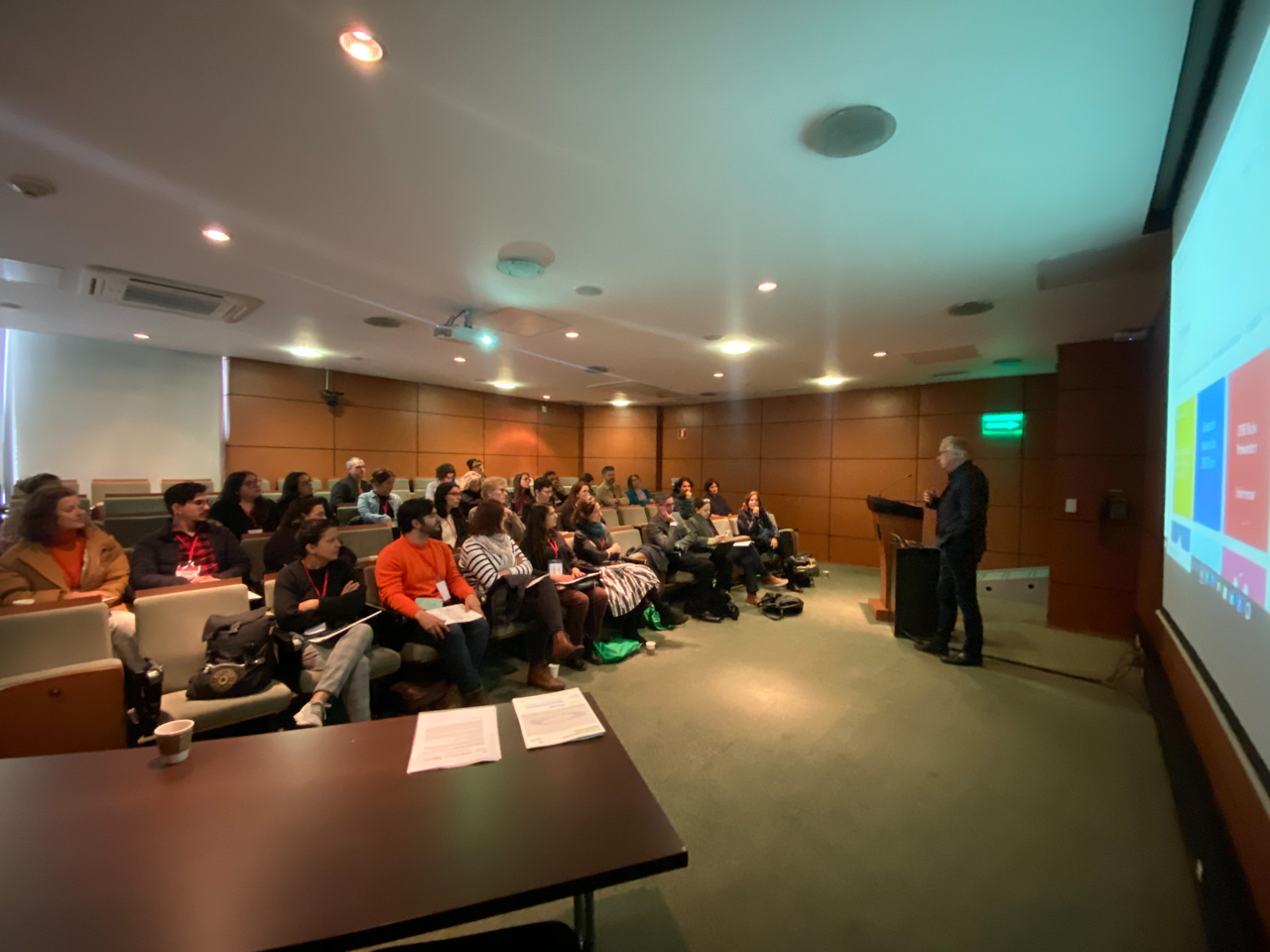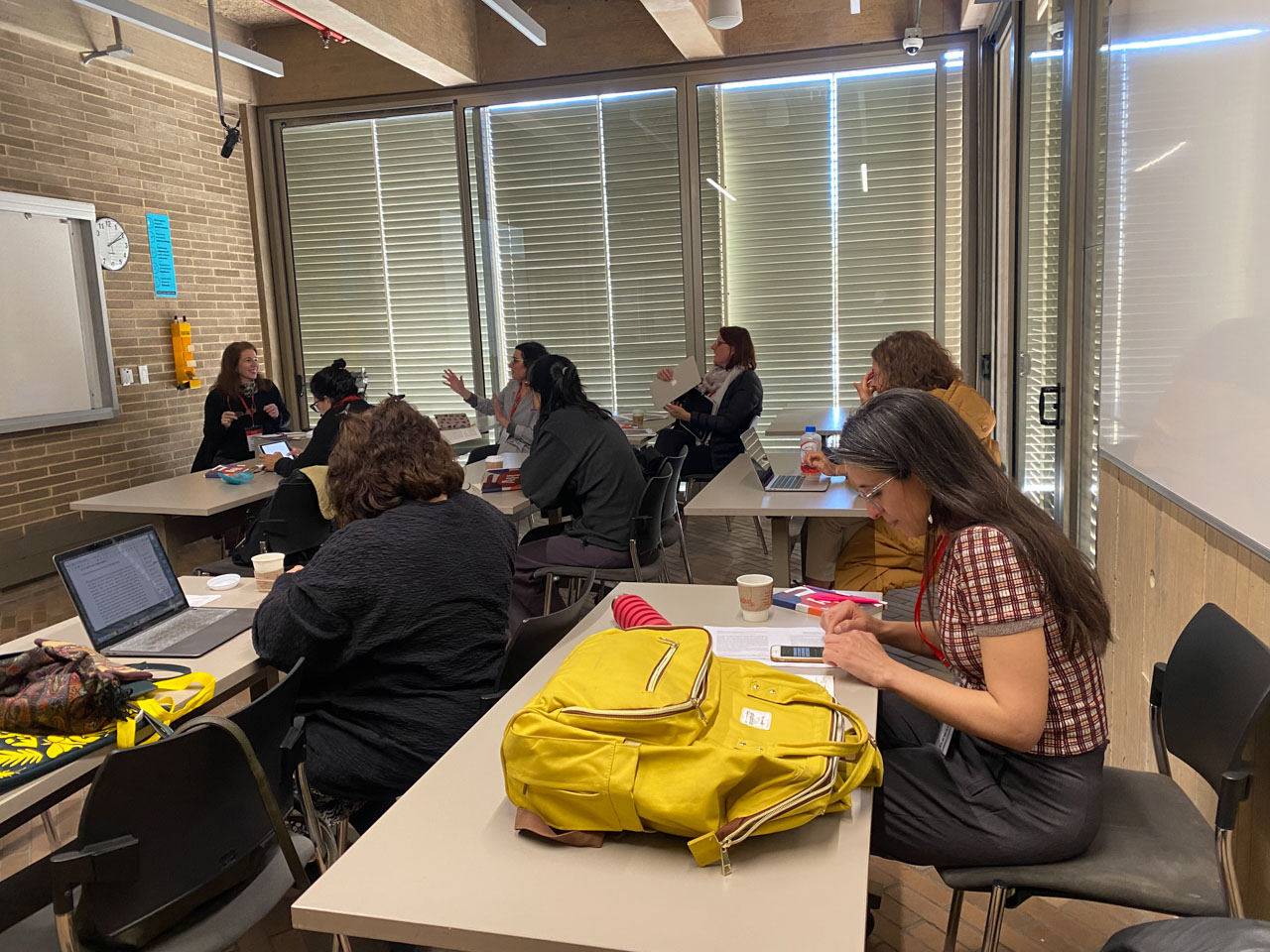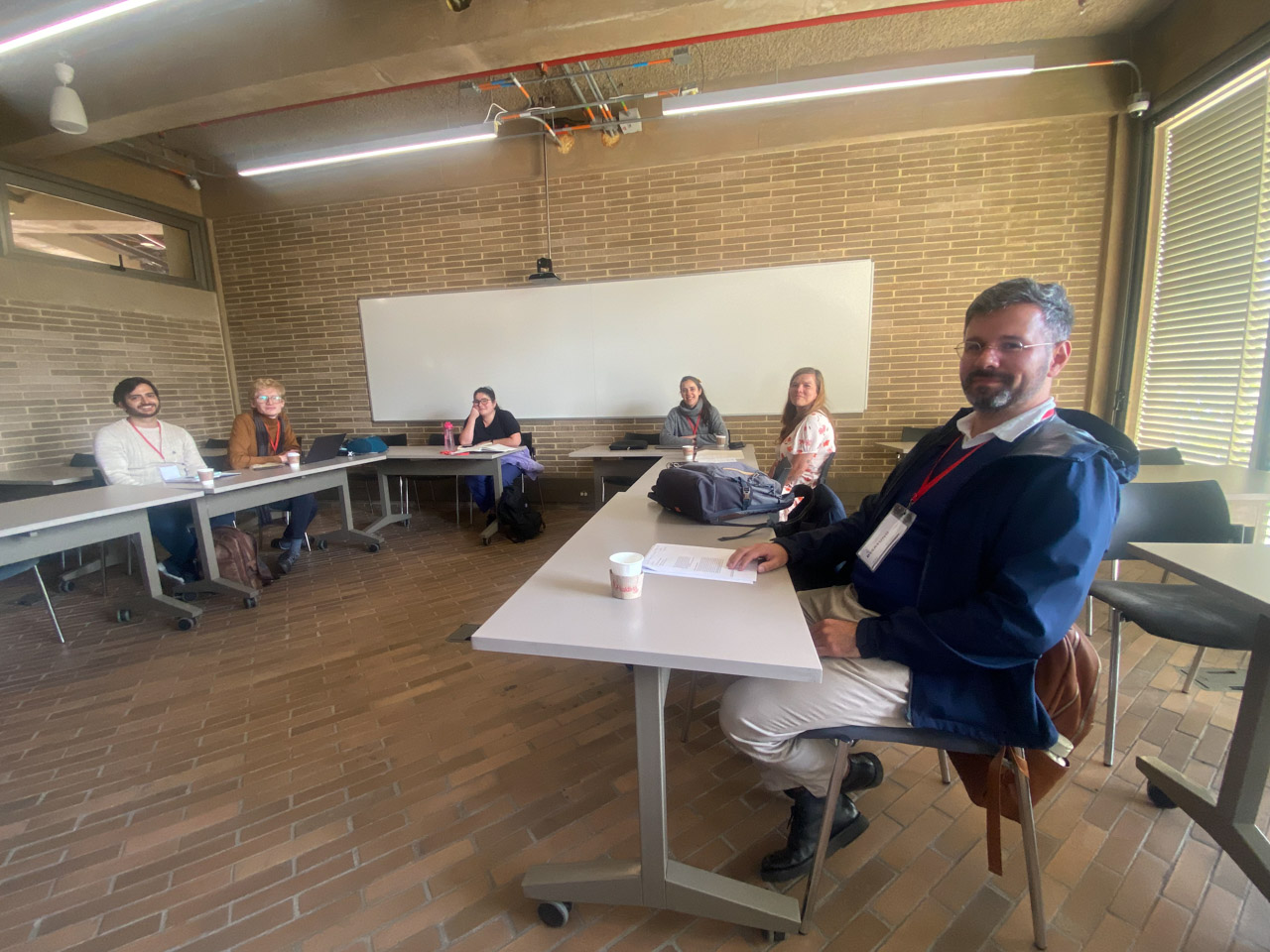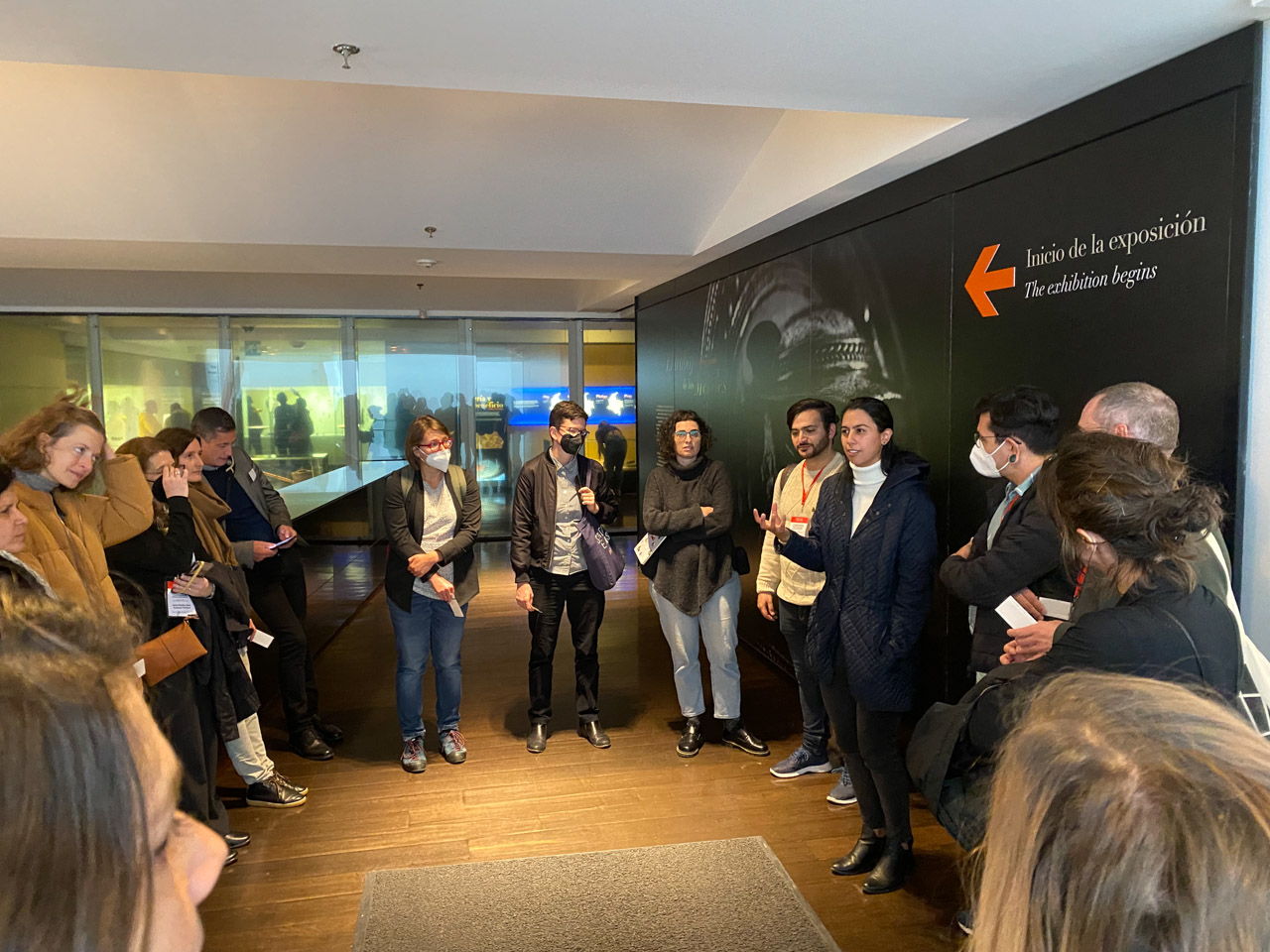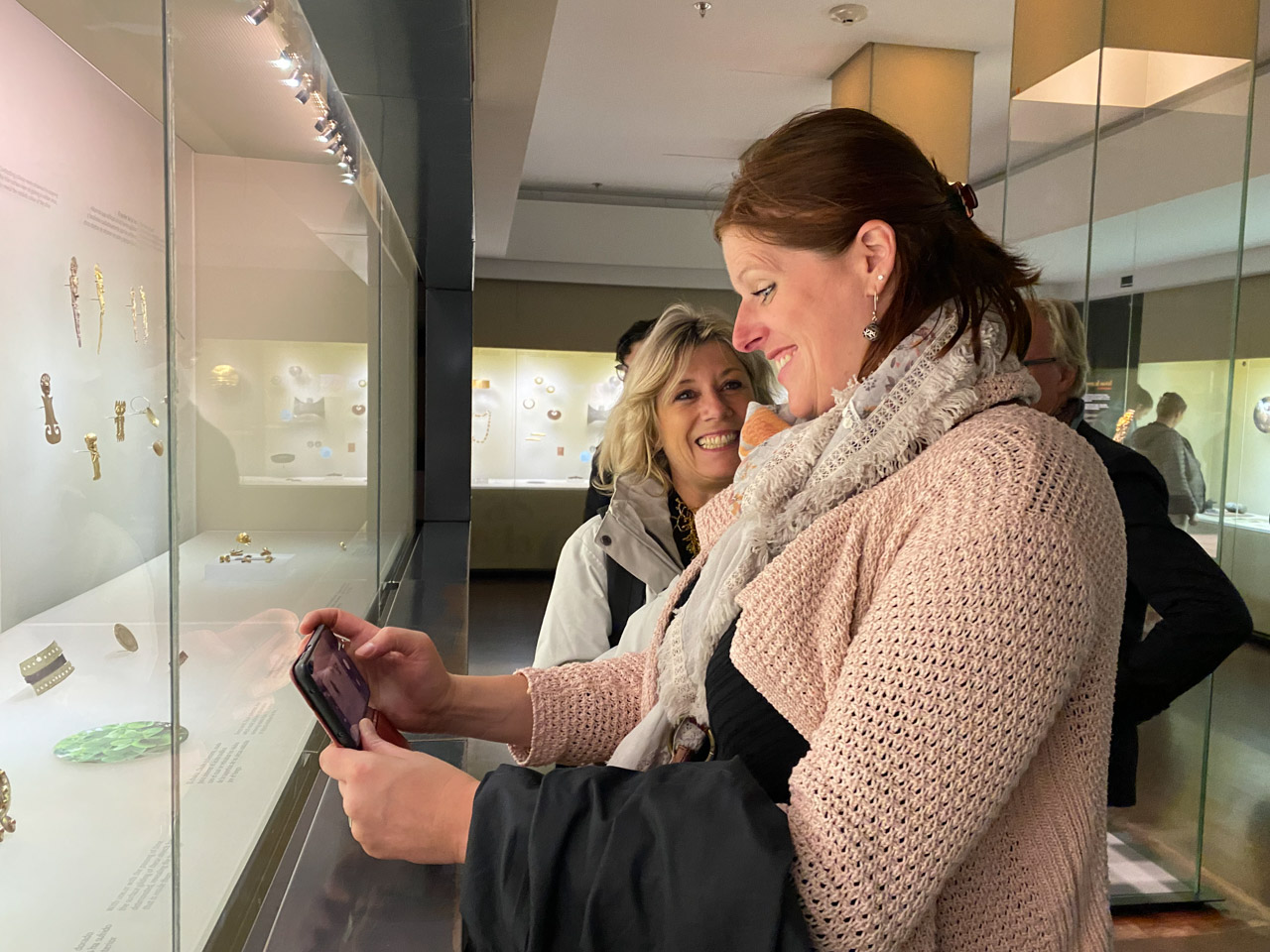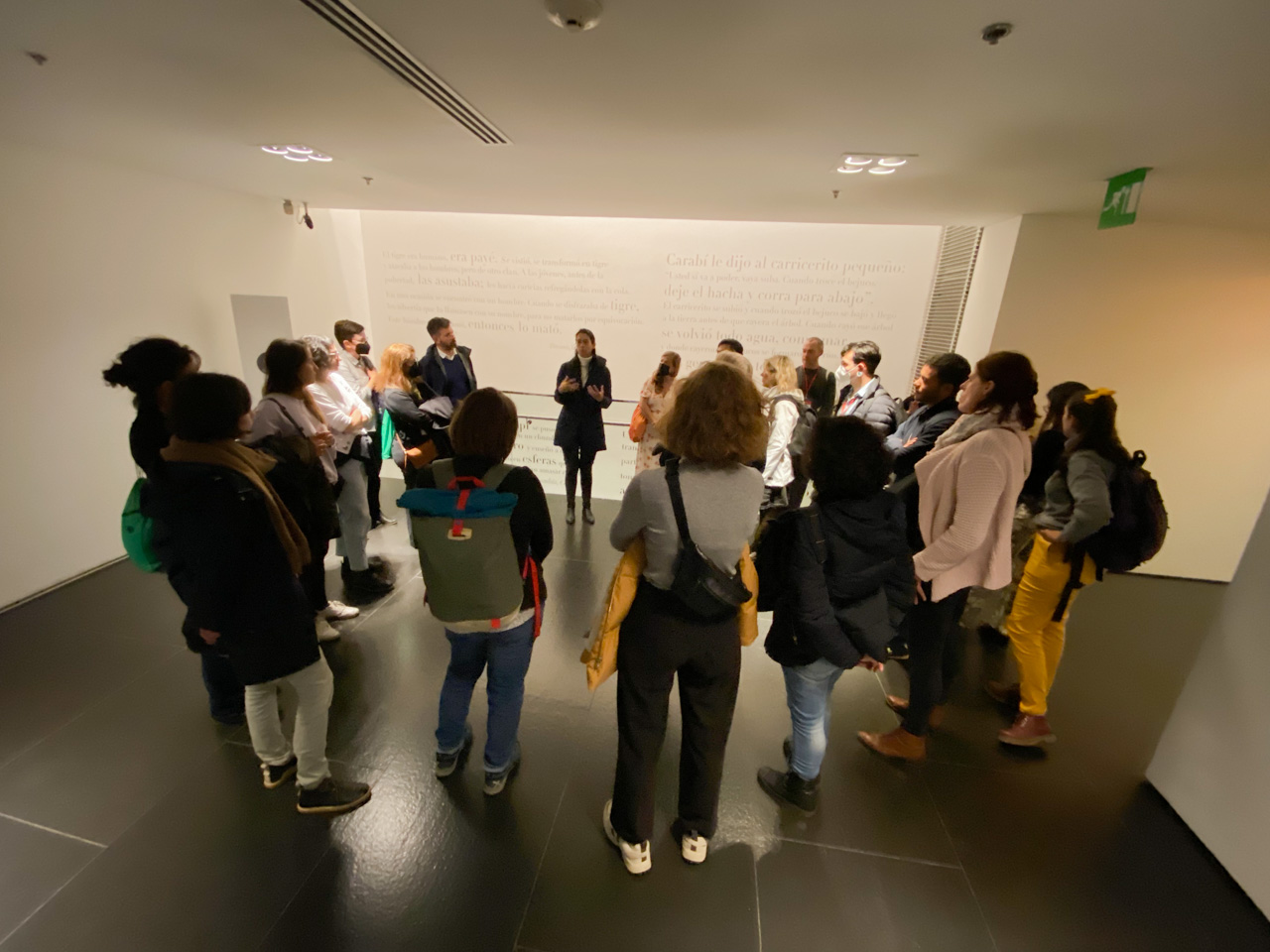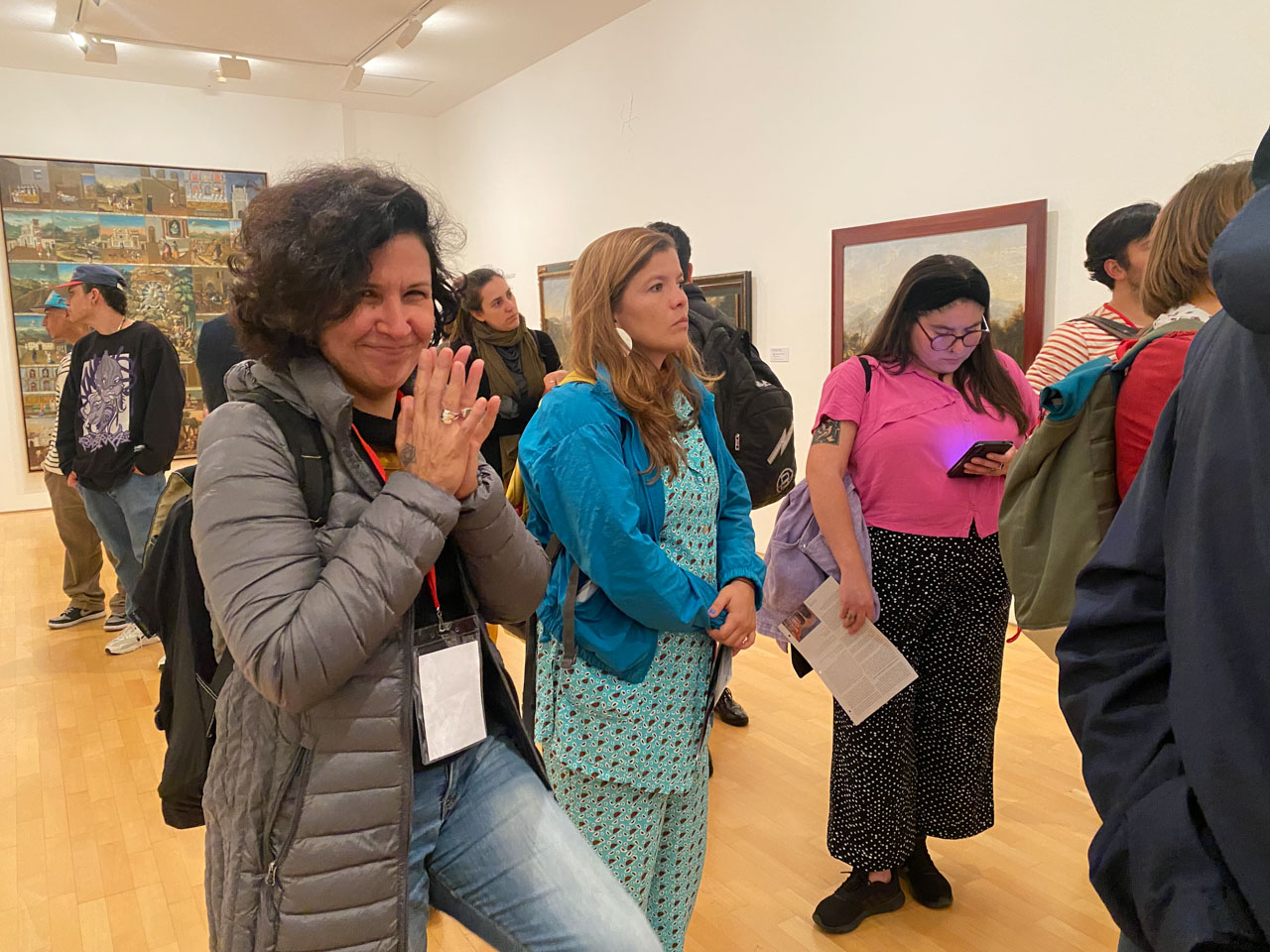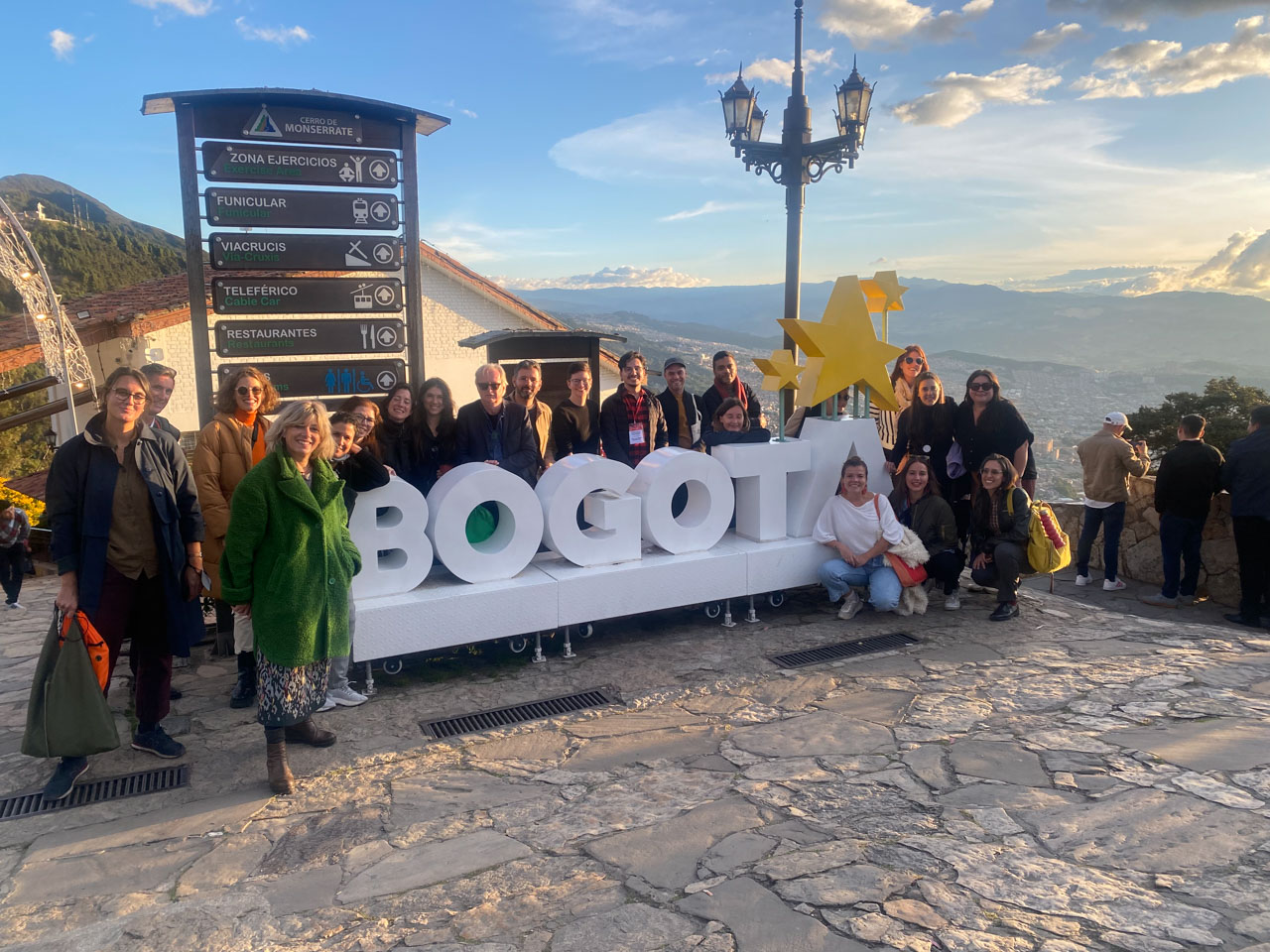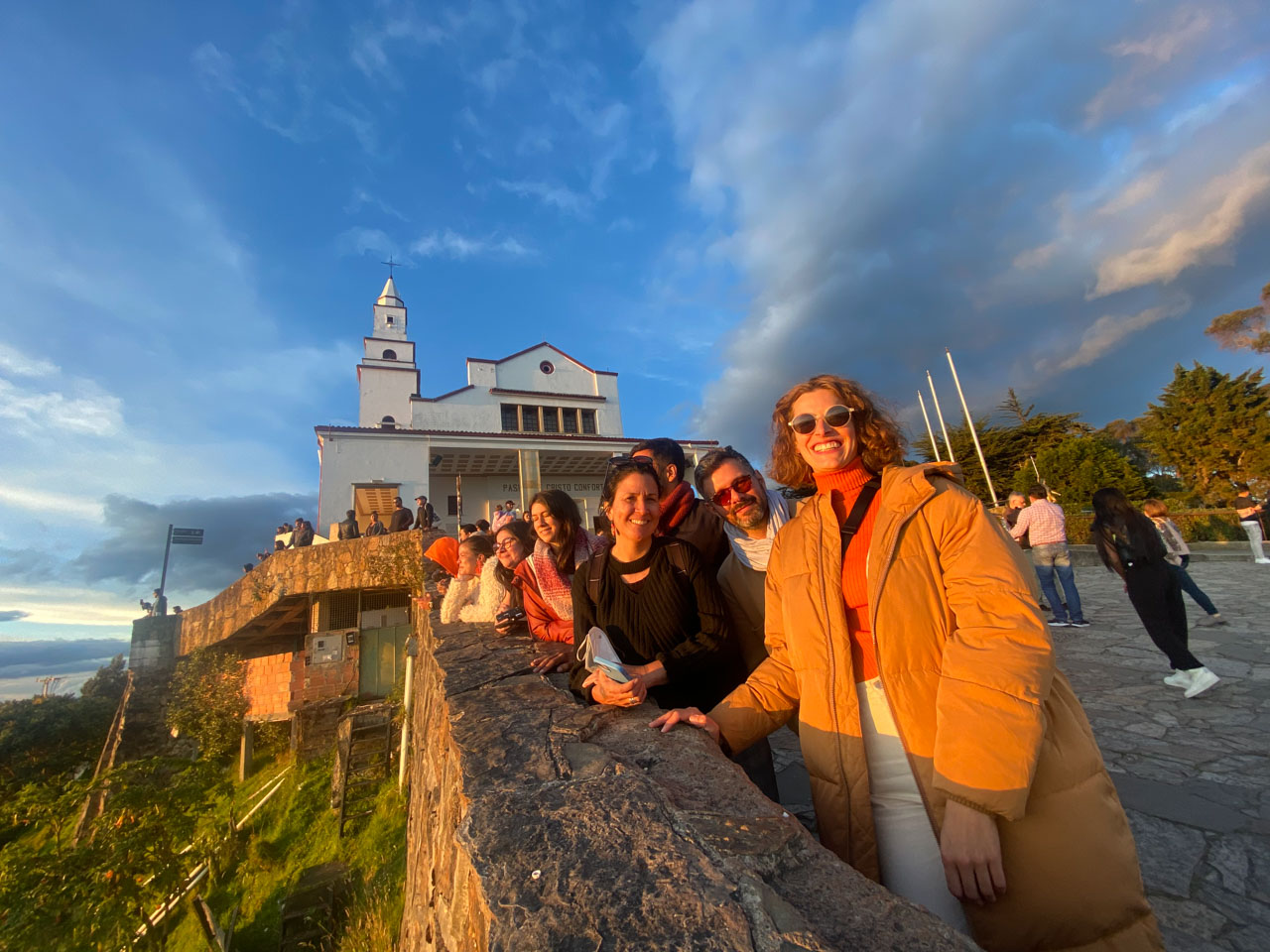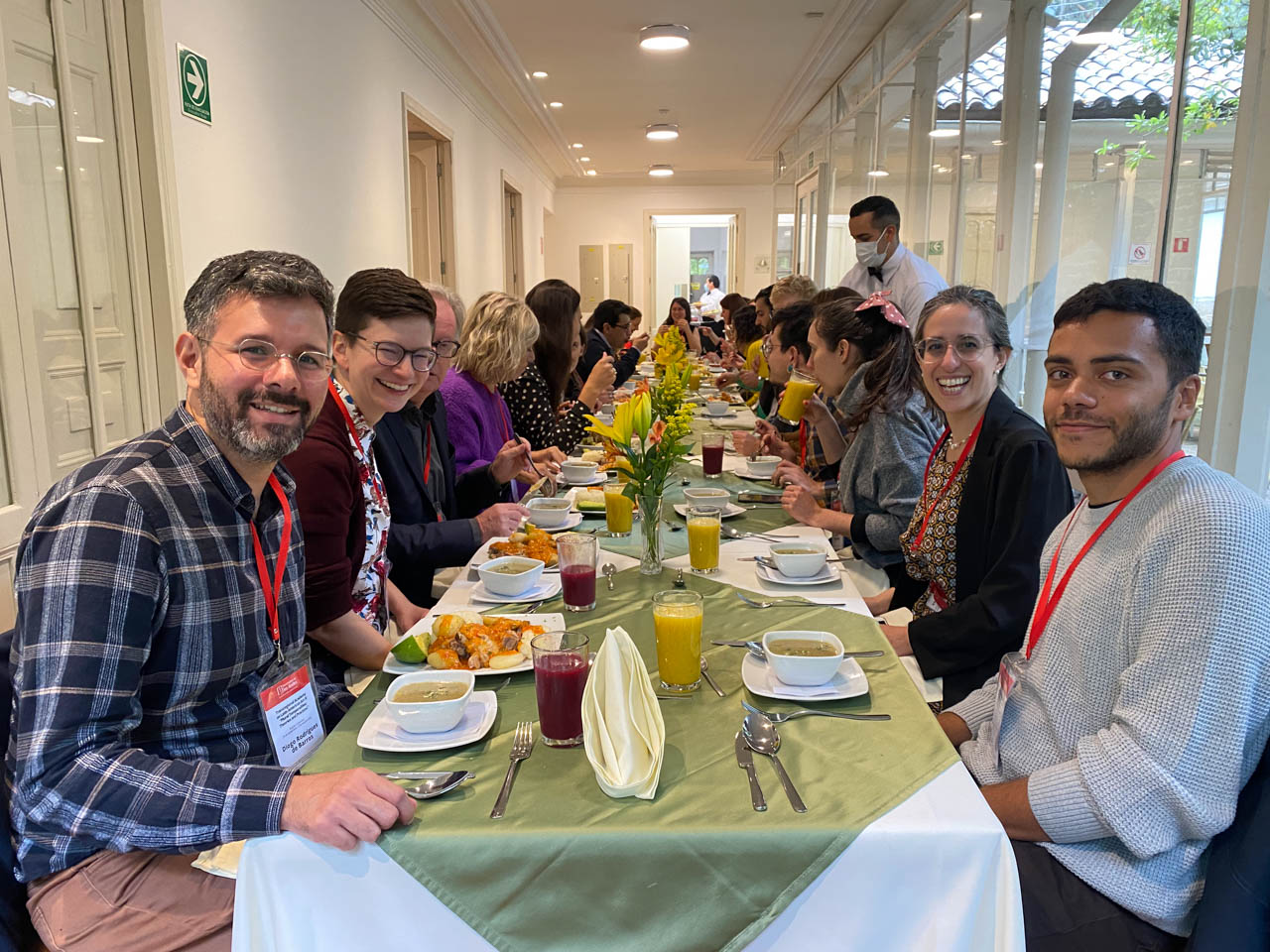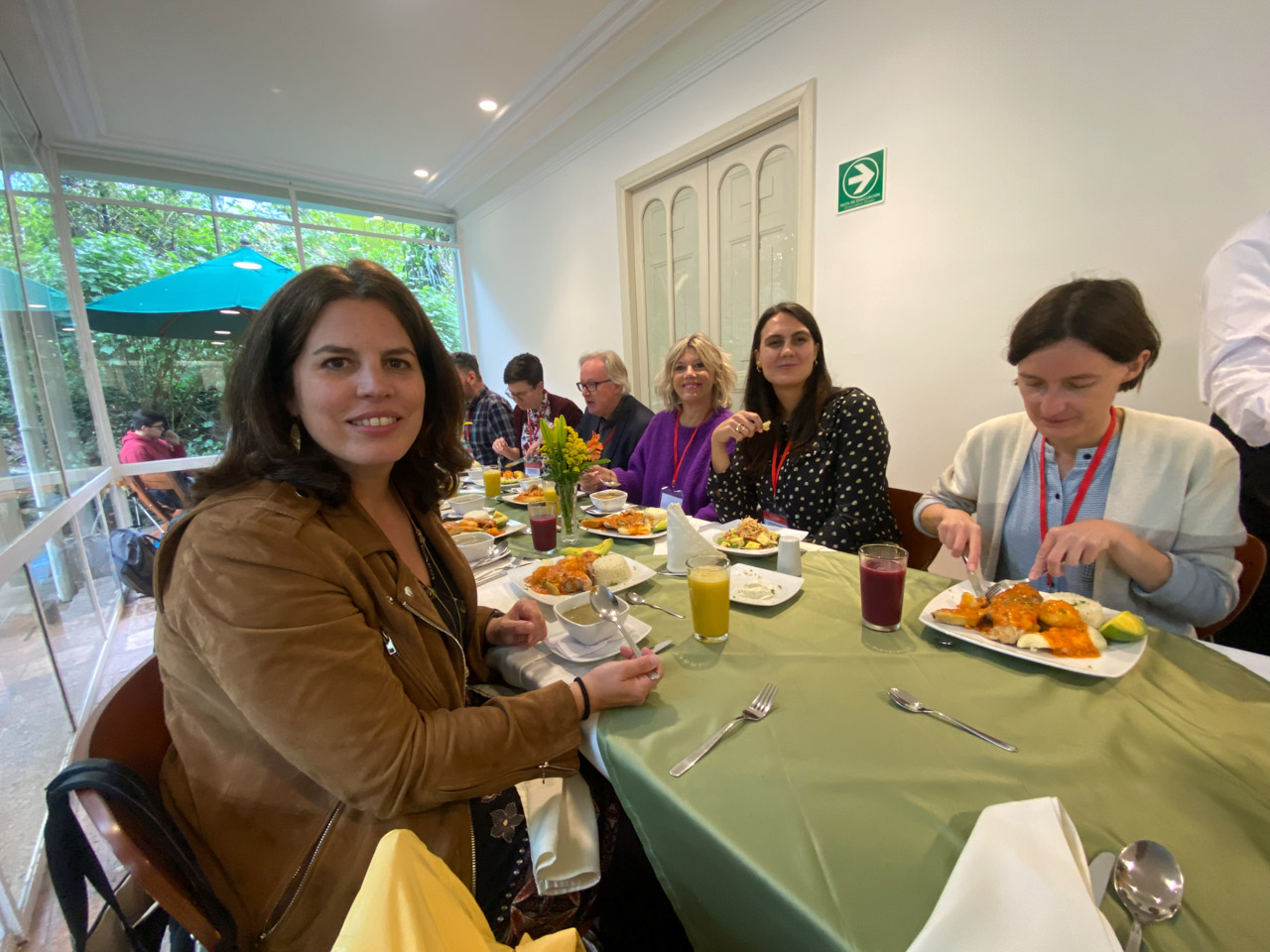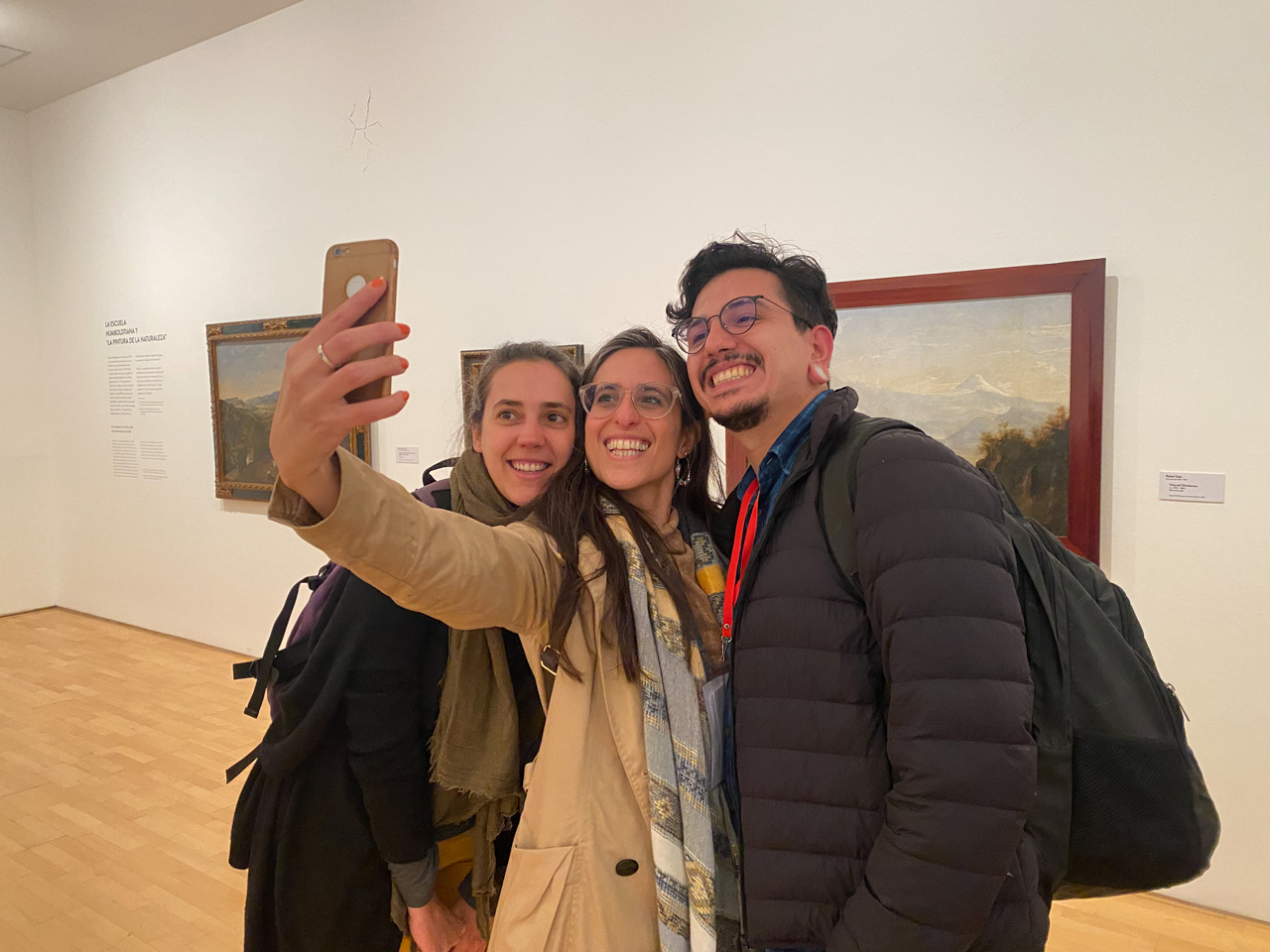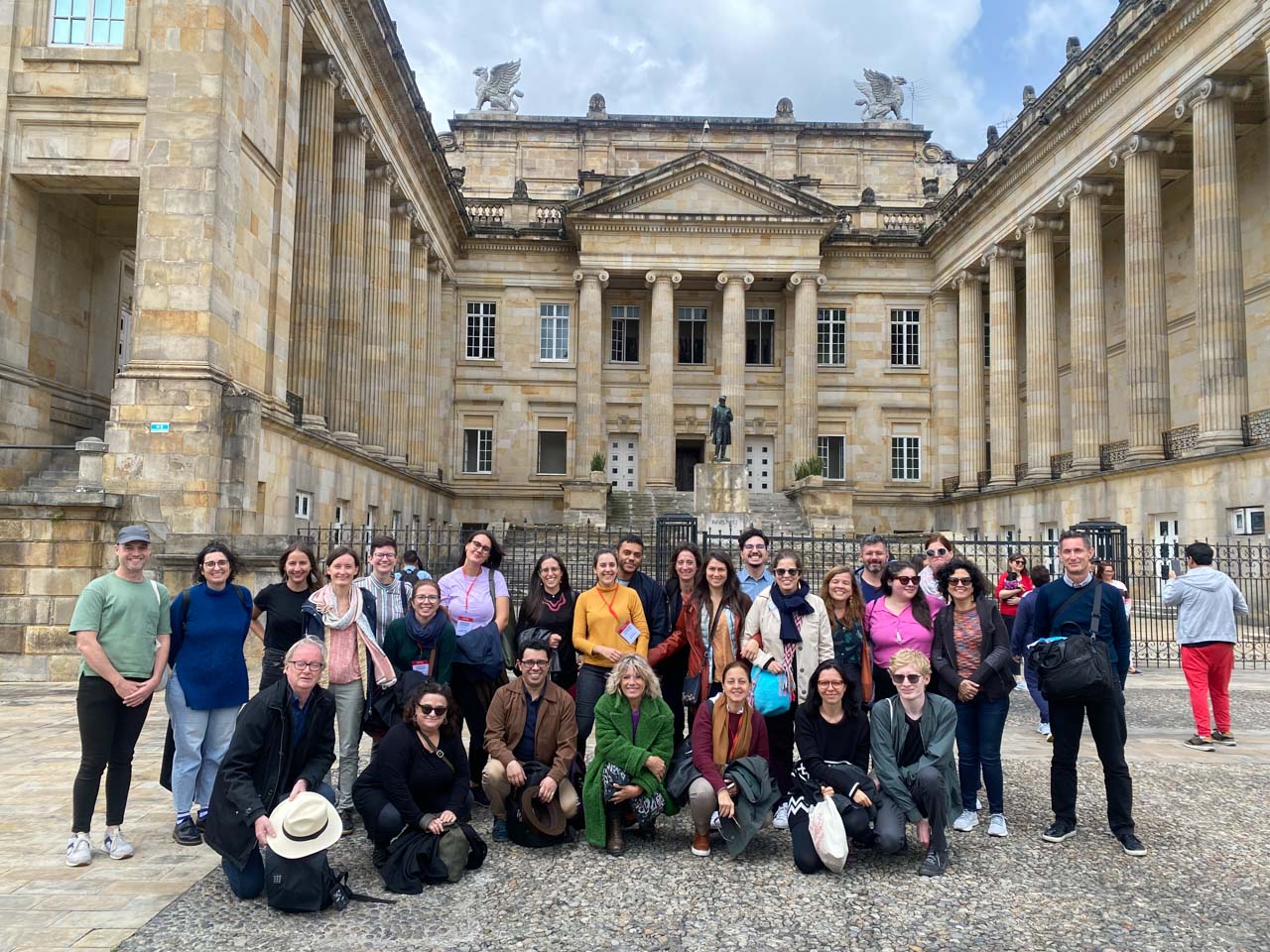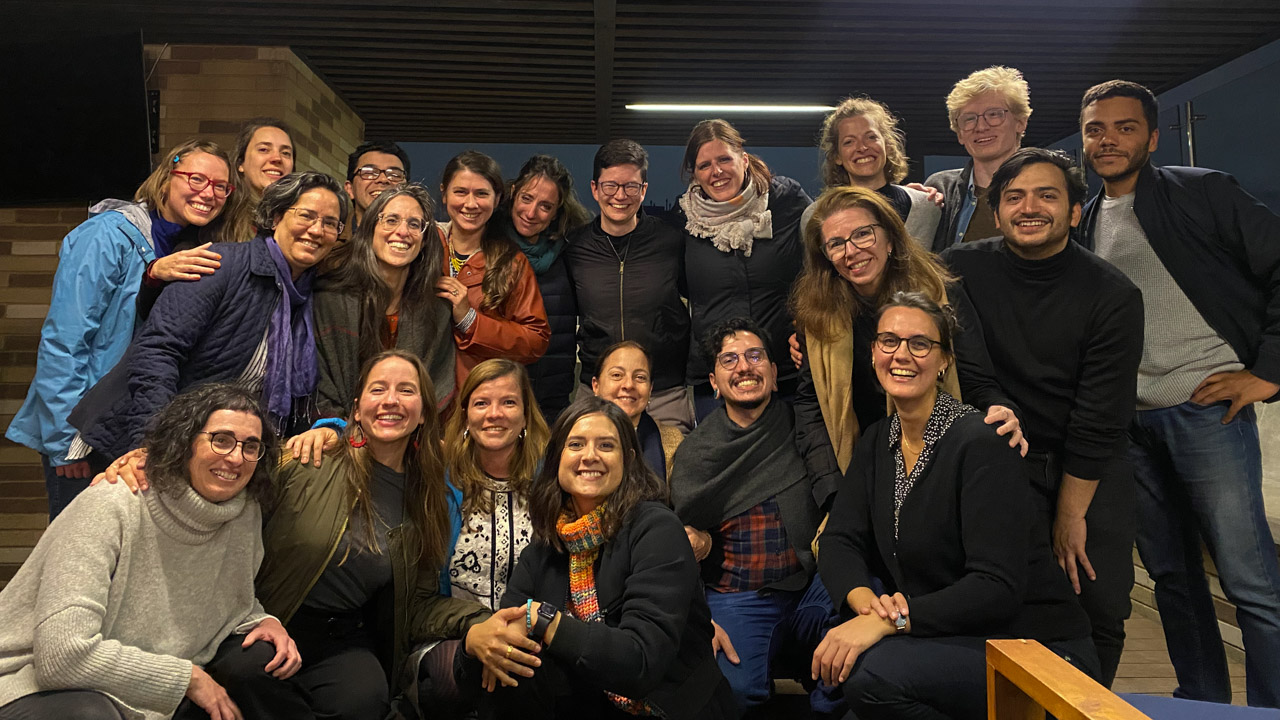
Transregional Academy on Latin American Art IV: Plural Temporalities. Theories and Practices of Time
This post is also available in: Español
From September 25 to October 2, 2022, the Transregional Academy on Latin American Art IV: Plural Temporalities event was held on Uniandes campus. Theories and Practices of Time was an event organized by the German Center for Art History in Paris (DFK) and the Department of Art History of the Faculty of Arts and Humanities. The subjects discussed during the event were: pre-Columbian and viceregal art, 19th-century art, and 20th-century social movements, among others. The academic discussions were complemented by visits to museums and art collections led by professors from the department who enriched the view of the participants by offering a local perspective to their research topics.
The objective of the Academy focused on the impact of the understanding of temporalities in the construction or deconstruction of identities within the discipline of art history from a lateral perspective. That is to say, considering the multiplicity of chronologies and, in addition, their perceptions, their practices, their causes, and consequences, to offer discourses that lay the foundations of a methodology or various methodologies.
Likewise, the objective of the Academy is to facilitate a transregional exchange of concepts of temporality and historicity. In order to adopt such a perspective, the research that is carried out in or about Latin American countries must be juxtaposed with discussions that take place in other places and are located within an international context and vice versa. For this reason, we have experts and doctoral students from various origins such as the United States, Cuba, Costa Rica, Mexico, Guatemala, Peru, Colombia, Argentina, Brazil, Germany, and France, among others.
From September 25 to October 2, 2022, the Transregional Academy on Latin American Art IV: Plural Temporalities event was held on Uniandes campus. Theories and Practices of Time was an event organized by the German Center for Art History in Paris (DFK) and the Department of Art History of the Faculty of Arts and Humanities. The subjects discussed during the event were: pre-Columbian and viceregal art, 19th-century art, and 20th-century social movements, among others. The academic discussions were complemented by visits to museums and art collections led by professors from the department who enriched the view of the participants by offering a local perspective to their research topics.
The objective of the Academy focused on the impact of the understanding of temporalities in the construction or deconstruction of identities within the discipline of art history from a lateral perspective. That is to say, considering the multiplicity of chronologies and, in addition, their perceptions, their practices, their causes, and consequences, to offer discourses that lay the foundations of a methodology or various methodologies.
Likewise, the objective of the Academy is to facilitate a transregional exchange of concepts of temporality and historicity. In order to adopt such a perspective, the research that is carried out in or about Latin American countries must be juxtaposed with discussions that take place in other places and are located within an international context and vice versa. For this reason, we have experts and doctoral students from various origins such as the United States, Cuba, Costa Rica, Mexico, Guatemala, Peru, Colombia, Argentina, Brazil, Germany, and France, among others.
Among the prominent guests of this event and as part of the Steering Committee, were: Lena Bader and Thomas Kirchner from the German Center for Art History in Paris (DFK Paris), Tristan Weddigen from Bibliotheca Hertziana – Max Planck Institute for Art History Rome, Natalia Majluf from the Museum of Art of Lima, the art historian and independent curator Karen Cordero and Patricia Zalamea from Uniandes.
This event is made possible with support from the Getty Foundation through its Connecting Art Histories initiative.
